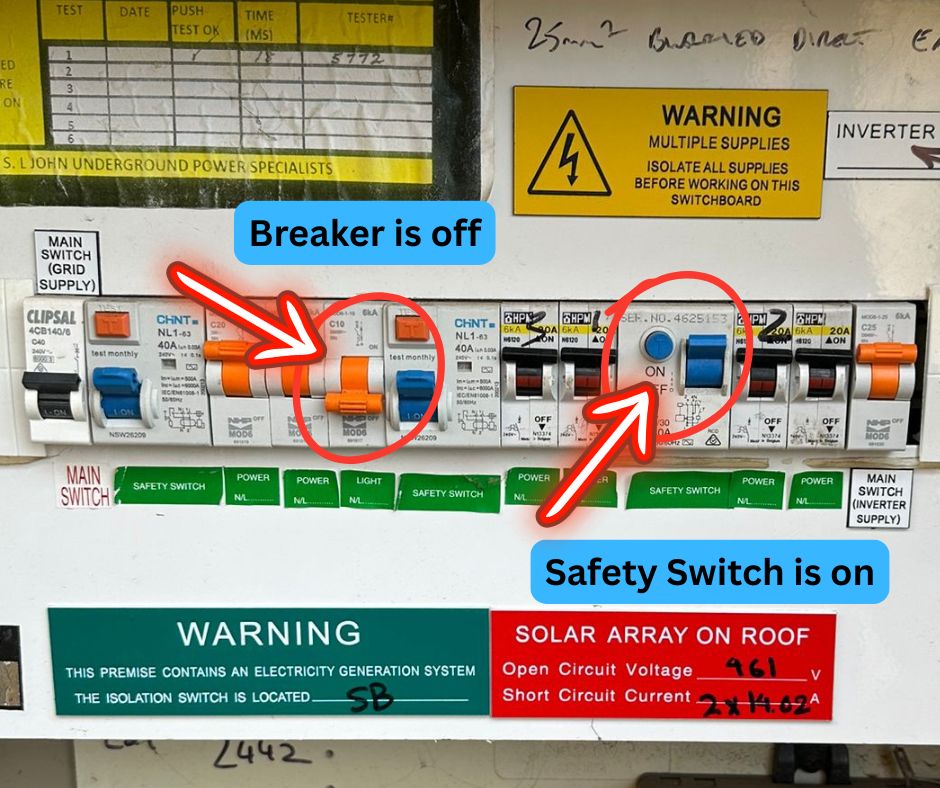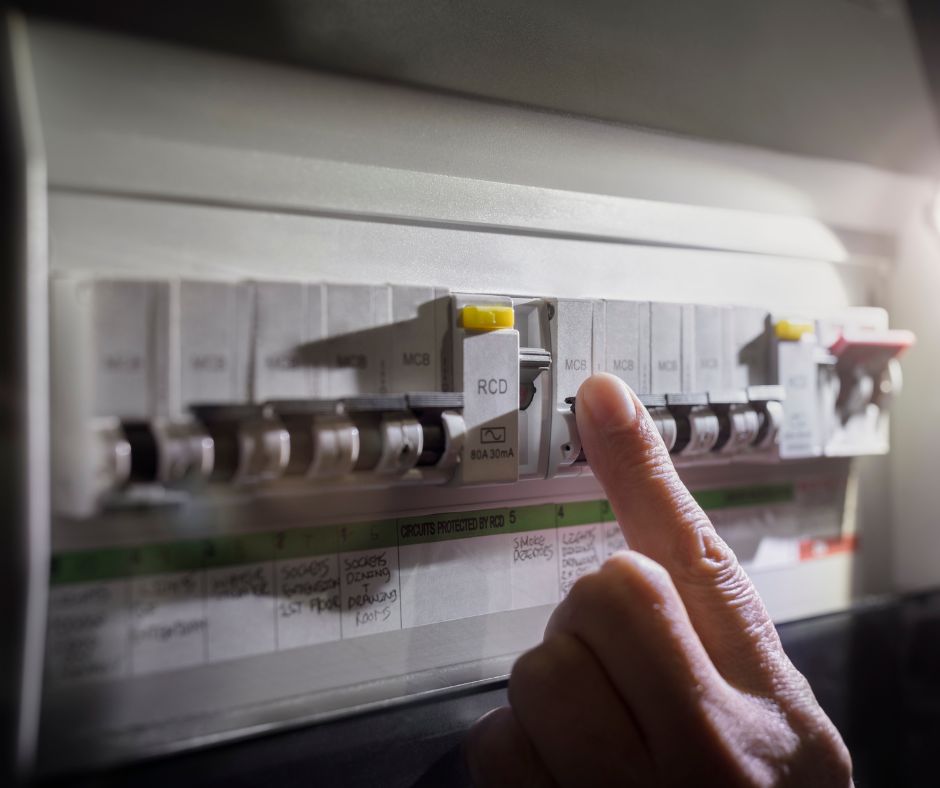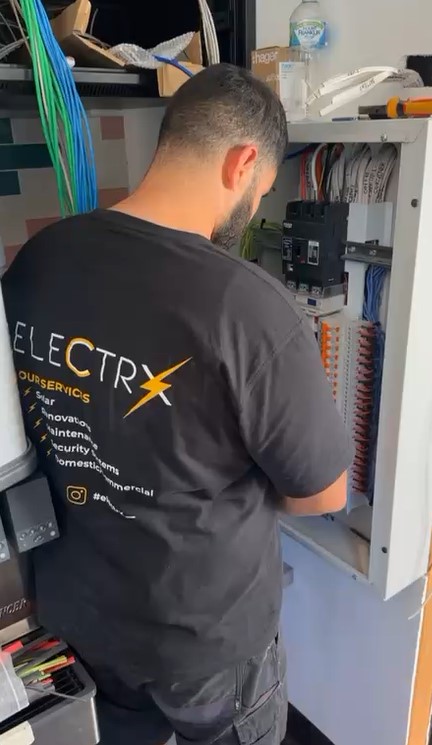Identify and Understand the Common Triggers of Frequent Circuit Breaker Tripping in Your Home
When a circuit breaker trips repeatedly, it serves a critical function in safeguarding your household from potentially dangerous electrical faults. This recurring issue can stem from various prevalent factors, including overloaded circuits, short circuits, faulty appliances, or concealed wiring problems. If you observe that the circuit breaker is tripping with regularity, it is imperative to pinpoint the root cause of the fault and seek the expertise of a qualified electrician to perform the necessary repairs, ensuring that your home remains safe and fully functional.

Effective Strategies to Diagnose the Root Causes of Your Circuit Breaker Tripping
If your circuit breaker shuts off immediately after being reset, this indicates an issue within your electrical system. The circuit breaker is fulfilling its designated role by cutting off power to avert potential dangers or more extensive problems. Addressing these issues promptly can significantly enhance the safety of your electrical system and help prevent future complications.
We frequently receive questions from homeowners located in Werribee, Altona, and Point Cook concerning this distressing issue. While it can be quite inconvenient, this occurrence is often a precursor to more severe electrical problems that could pose significant risks if not addressed in a timely manner.
This article will delve into the various underlying causes of circuit breaker tripping, offer practical troubleshooting methods you can employ, and elucidate how Electrx can effectively resolve these electrical challenges.
Gain Insights into How Circuit Breakers Function to Protect Your Home
Circuit breakers are designed as automatic safety devices that protect your home by interrupting the power supply under certain conditions, such as:
- When excessive current flows through a circuit, leading to an overload situation.
- In scenarios of short circuits that can result in hazardous electrical faults.
- When there is power leakage to the ground, indicating an earth fault.
- If the circuit breaker itself is malfunctioning or nearing the end of its operational lifespan.
Unlike traditional fuses, circuit breakers react more swiftly to potential dangers, providing a superior safety mechanism that does not depend on melting wires to stop the current flow. This ensures a safer environment for your family and home.
Uncover the Reasons Why Your Circuit Breaker Refuses to Stay Reset
If you find yourself resetting the breaker only for it to trip almost immediately again, this suggests that there is an active fault present on that specific circuit. Understanding the common causes can assist you in diagnosing the issue effectively and taking appropriate action.
The primary issues that often lead to this troubling situation include:
Understanding Overloaded Circuits: A Common Electrical Challenge
Overloaded circuits are a prevalent electrical concern, especially when multiple high-draw devices such as kettles, toasters, or heaters are used simultaneously on the same circuit. The cumulative load can easily surpass the safe capacity, prompting the circuit breaker to trip as a protective measure against overheating and potential fire hazards that could jeopardise your home and safety.
Investigating If Faulty Appliances Are Contributing to the Circuit Breaker Issues
In some cases, the source of the problem may not lie with the wiring itself, but rather with the devices plugged into the circuit. Appliances such as heaters, older refrigerators, and dryers are often frequent culprits; internal malfunctions within these devices can lead to short circuits or current leakage, causing the breaker to trip unexpectedly.
Exploring the Risks Associated with Short Circuits and Their Causes
Short circuits occur when damaged wiring, rodent infestations, or crushed insulation allow live wires to contact the earth or neutral wires directly. This condition can cause the circuit breaker to trip rapidly to prevent hazardous outcomes that could threaten your property and safety.
Understanding Earth Leakage and Its Impact on Circuit Breakers
Moisture infiltration in outdoor outlets, garden lighting setups, or under-house cabling can create conditions that allow current leakage into the ground. Such scenarios can prompt Residual Current Devices (RCDs) to trip as a precautionary measure, ensuring the safety of your electrical system and preventing potentially dangerous situations.

Proactive Measures to Implement When Your Circuit Breaker Trips
- Disconnect all devices connected to the outlets on the affected circuit to eliminate any potential source of overload that could be causing the breaker to trip.
- Reset the circuit breaker by flipping it back to the ‘on’ position to restore power once all devices have been unplugged.
- If the breaker remains active, begin reconnecting your devices one at a time to identify the source of the problem.
- When the breaker trips again, you will have identified the faulty device that requires further inspection or replacement.
- If the breaker continues to trip even with no devices connected, it is essential to reach out to our team for professional assistance.
Utilise our Fault Finding Service to receive a thorough and prompt diagnosis of your electrical issues, ensuring your safety and peace of mind.
Recognising When It’s Time to Stop Resetting Your Circuit Breaker
If your circuit breaker frequently trips or refuses to reset altogether, you should heed the following precautions:
- Refrain from continually resetting the breaker—this action can place undue stress on the entire electrical system, leading to further complications.
- Avoid swapping breakers between different circuits, as this practice may lead to additional issues down the line.
- Do not attempt to replace the breaker yourself—this is not only illegal but also poses significant safety risks to both you and your home.
We have witnessed numerous cases in which DIY resets have resulted in damaged boards or even house fires. Trust our experienced professionals to safely and effectively trace the underlying issue and provide a reliable solution that will restore safety to your home.
What You Can Anticipate When Electrx Addresses Your Circuit Breaker Issues
When our dedicated team at Electrx responds to a reported circuit breaker fault, we conduct a comprehensive assessment that includes:
- Testing the circuit using specialised clamp meters and insulation testers to ensure safety and reliability.
- Inspecting all outlets, fittings, and switchboard connections for any signs of irregularities or wear that could lead to faults.
- Examining appliances that may be contributing to the fault for potential internal issues that could cause tripping.
- Replacing the circuit breaker or RCD if we determine it has failed during our thorough assessment.
- Repairing any damaged cabling or terminals that present a safety risk to your electrical system.
- Issuing a Certificate of Electrical Safety upon the successful completion of our work, ensuring compliance with all necessary safety standards.
If your switchboard is outdated or lacks sufficient safety switches, we may also recommend a Switchboard Upgrade to enhance safety standards and provide better protection for your home.
Understanding the Lifespan of Circuit Breakers and Recognising Signs of Failure
Circuit breakers, like any mechanical device, have a finite lifespan. If your breaker is tripping excessively or does not reset smoothly, it may indicate a fault that requires immediate attention.
Signs that your circuit breaker may be approaching failure include:
- Feeling hot or loose to the touch, indicating potential overheating and malfunction.
- Tripping without any apparent cause, suggesting underlying issues that need to be investigated.
- Requiring significant effort to reset, a clear indication of malfunction.
- Flipping even when there is no load connected, which points to possible internal faults that need addressing.
We maintain a selection of modern, compliant replacement breakers readily available and can promptly replace faulty breakers to ensure the safety and reliability of your electrical system.

Your Circuit Breaker Questions Addressed: Comprehensive FAQ
Is it legal for me to replace my circuit breaker myself?
No, according to Victorian law, only a licensed electrician is authorised to safely and legally replace circuit breakers in residential settings.
Why does my circuit breaker trip when I operate the heater?
Heaters typically draw a significant amount of current. If they share a circuit with other high-power devices, this can lead to an overload situation, causing the breaker to trip as a protective measure against potential hazards.
Can a faulty outlet cause my circuit breaker to trip?
Indeed, damaged or melted outlets can short internally, causing the breaker to trip each time the circuit is energised, which can create hazardous conditions and increase the risk of fire.
Is this a situation that requires immediate attention?
Absolutely, especially if the breaker fails to reset, affects critical appliances, or shows signs of burning or overheating that could pose serious risks to your property and safety.
Final Thoughts on Circuit Breaker Problems and Their Effective Solutions
When circuit breakers trip, it is vital to recognise that they do so for specific reasons. If your breaker fails to stay reset, it is crucial not to disregard this warning, as the underlying issue could reside within your wiring, appliances, or the switchboard. Electrx is well-equipped to identify and resolve these concerns swiftly and effectively.
We will manage all necessary repairs to ensure your system operates safely and reliably, maintaining its dependable performance for your peace of mind.
Contact us for expert assistance with Melbourne Switchboards and all your electrical needs.
Circuit Breaker Keeps Tripping or Won’t Stay Up? Here’s What It Means
The Article: Circuit Breaker Tripping? Discover What It Means first appeared on https://writebuff.com
The Article Circuit Breaker Tripping Explained: What You Need to Know Was Found On https://limitsofstrategy.com


